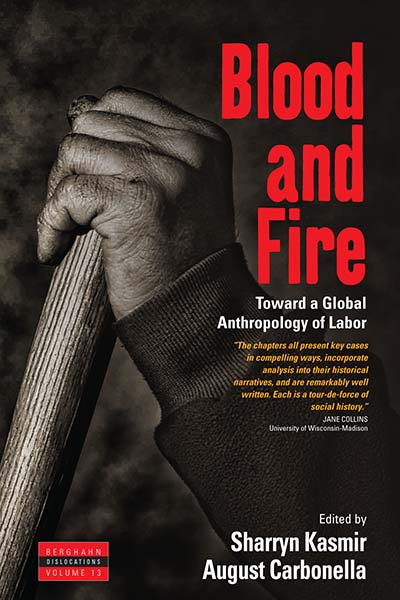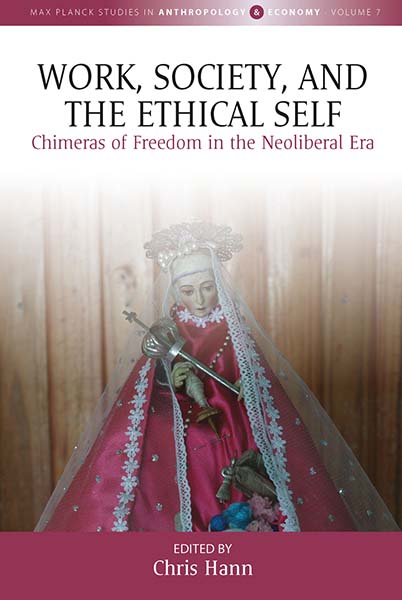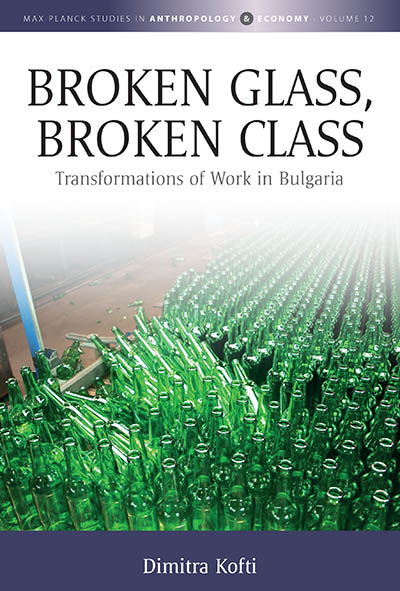
Series
Volume 13
Dislocations
See Related
Anthropology JournalsEmail Newsletters
Sign up for our email newsletters to get customized updates on new Berghahn publications.
Blood and Fire
Toward a Global Anthropology of Labor
Edited by Sharryn Kasmir and August Carbonella
308 pages, bibliog., index
ISBN 978-1-78238-363-5 $135.00/£104.00 / Hb / Published (August 2014)
ISBN 978-1-78533-748-2 $34.95/£27.95 / Pb / Published (October 2017)
eISBN 978-1-83695-641-9 eBook
Reviews
“…this volume is [very useful] not only for its breadth and detail, but also for its well-articulated common set of concerns. The book works well as an analysis of labour as a political issue, which is the editors’ explicit goal. However, it also works very well as a primer on human life and labour over the past century…These essays are distinctively strong in demonstrating a holistic anthropology that reaches not only across space, but also across time – an anthropology that is, as several of the authors note, historical, geographical, social, and political.” • Journal of the Royal Anthropological Institute
“[This volume] draws upon long-term fieldwork to examine how labor struggles have faltered, become disconnected from the societal mission to advance the greater good, and the reactions and fallout from this change. Applying principles of global anthropology to the dilemma, Blood and Fire portrays an uncertain future. A thought-provoking and studious title, ideal for college library anthropology shelves.” • Library Bookwatch
“…as a collection focusing on organized (and increasingly disorganized) labor and the processes that leave workers atomized, vulnerable, and often at each others' throats, Blood and Fireis significant and, frankly, scary.” • Anthropology Review Database
“This is a superb and important book. It is a book that is sorely needed in the field of anthropology (and also labor history). There has not been an attempt to take stock of where anthropology stands in relation to the study of labor in nearly 30 years, and so much has happened since then… The chapters all present key cases in compelling ways, incorporate analysis into their historical narratives, and are remarkably well written. Each is a tour-de-force of social history.” • Jane Collins, University of Wisconsin-Madison
“This is a collection of highly original pieces which, taken together, make an important contribution… to the anthropology of labor. Anthropologists wishing to engage with the ever more complex relations and forms of labor will rush to read it, and non-anthropologists ever more fascinated by the insights ethnography affords to an increasingly messy and ill-formed socio-economy will likewise be drawn to the book.” • Gavin Smith, University of Toronto
“…an outstanding collection of essays that address formative questions that are of great import to anthropologists and social scientists more generally, historians among others. This volume is exemplary…[in that] all the essays are striking for their clarity of prose and argumentation.” • Linda Green, University of Arizona
“[this] excellent volume sets up an ambitious and engaging theoretical framework for a new anthropology of labor… Particularly powerful is the book’s emphasis on the interrelation between class, spatiality, violence and history.” • Massimiliano Mollona, Goldsmiths College, London University
Description
Based on long-term fieldwork, six vivid ethnographies from Colombia, India, Poland, Spain and the southern and northern U.S. address the dwindling importance of labor throughout the world. The contributors to this volume highlight the growing disconnect between labor struggles and the advancement of the greater common good, a phenomenon that has grown since the 1980s. The collection illustrates the defeat and unmaking of particular working classes, and it develops a comparative perspective on the uneven consequences of and reactions to this worldwide project. Blood and Fire charts a course within global anthropology to address the widespread precariousness and the prevalence of insecure and informal labor in the twenty-first century.
Sharryn Kasmir is Professor of Anthropology at Hofstra University. She is the author of The “Myth” of Mondragón: Cooperatives, Politics, and Working Class Life in a Basque Town (State University of New York Press) and other works on the anthropology of labor.
August Carbonella is Professor of Anthropology at Memorial University of Newfoundland, Canada. He has published widely on the historical memory of the Viet Nam War, and on problems of structural violence, class, race, and citizenship in North America.




